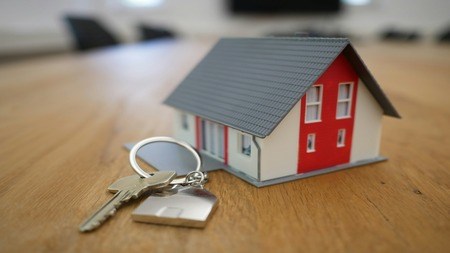When it comes to rental properties, the perfect scenario is to find a place that combines at least three components:
- A monthly rental within budget.
- A location that allows you to access all the facilities you require.
- A lease terms that you find agreeable.
Searching for a rental property can be a daunting task, and more so if you are not adequately prepared. By being prepared, you are able to narrow your search to a select number of properties instead of viewing a multiple number of rentals to determine what you do and don’t like.
Preparing a list of criteria
If you have a family, it is best to involve every member in your criteria list. Their input will allow you to determine where compromises can be made, if indeed that is necessary at a later date.
- Set a budget.
- Ideal locations/suburbs.
- Type of property (garden cottage, apartment, free-standing house, sectional title etc) and age (new, modern, character home etc), privacy and access to good infrastructure.
- How you will search (use a property agent, online search, etc).
- How long you will likely live on the property.
- Whether you require furnished or unfurnished, and cost of moving.
- Maintenance budget: additional costs such electricity and water; whether you need a gardener; transport costs.
- Condition of property.
- Nice-to-have’s: those items that aren’t essential but go to improved lifestyle such as solar, gas appliances, guest toilet etc.
Identify your priorities and set a value to the criteria
Choose a rating system (eg: 1, 2, 3, 4… or High/Medium/Low), and rate each of the points in your criteria list. This will indicate how you will start your search; and if that is online, these key statements will narrow the search considerably.
Budget and location
Budget is a huge determining factor in the decision about where you want to live. You may want to live in a particular suburb, but you may not be able to afford it. Another aspect is that rental properties that have an exclusivity catch (view of beach or cityscape) are likely to demand a higher rental … the higher the apartment in a block, the more expensive rent you are likely to pay.
Consider the following tips:
- If your budget excludes certain locations, look at bordering suburbs that may offer lower rentals.
- Determine access the suburb, as well as road and transport infrastructure (don’t forget to judge peak hours), and other amenities such as schools, retail environments, medical facilities, places of worship and eateries.
- Type of residents in the suburb: are you looking for a predominantly family-oriented, retired, or vibey youth community?
- Age of the suburb or precinct: the older the home, likely the more maintenance and while this is considered to be the responsibility of the owner, you may be inconvenienced during repair.
- An area’s overall security should be considered from the aspect of number of security features such as number of patrol vehicles, CCTV, etc.
Lease agreement terms
You’ll likely have a good idea of how long you intend to rent. For example, if you are saving to buy a property, you may need to only rent for six months. Property leases are generally at least a year, and usually have a deposit requirement of between one to three months.
If you do find the ‘perfect’ property and your lease terms are not exactly what you require, consider approaching the landlord with your specific requirements. Landlords are usually flexible especially when the potential tenant has a good rental and credit track record. These terms do not necessarily have to be financial. For example you may have gardening or building talents from which the landlord’s property will benefit, and you can trade those off in an agreement to adjust the lease to your terms.
Regardless, do not sign any lease unless you clearly understand the conditions. Indicate that you are keen, and ask for first option while you consider each of the lease conditions and the impact those may have on your budget, your lifestyle, and your needs.
Three extra tips
- The crucial point is timing. Rental properties are often advertised as being immediately available or in a month, but don’t leave your search to the last minute. By viewing online properties that you like, even if you can’t rent those now, at least allows you to keep your eye on similar properties that may be available in the future, when you are ready.
- Depending on each renter’s checklist and budget, your search will likely need to be fine-tuned along the way, and compromises made.
- Consider engaging the services of an agent. Rental property agents will know when leases are expiring and be able to give you first option before it becomes necessary to advertise.





